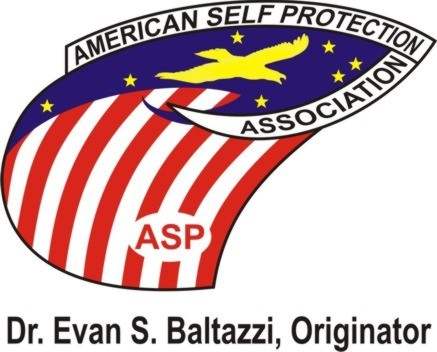 The
American Self Protection Association, Inc.
The
American Self Protection Association, Inc.
Home of America's first Mixed Martial Art Training Method for the Entire Family
Children
|
Home of America's first Mixed Martial Art Training Method for the Entire Family Children
|
|
SELF PROTECTION FOR YOUNGSTERS (AND PARENTS) It is very unfortunate, but true, that young people of both sexes are increasingly victims of vicious attacks. Not only from strangers, but also from members of their immediate family. In this connection, human suffering and financial loss have reached unacceptable levels and youngster education in self protection has become a necessity. With proper training, they can reduce drastically their chances of becoming the helpless victims of an attack. The following guidelines, drawn from the experience of many police departments around the U.S.A. will help reduce attacks and accidents involving youngsters. Parents should do well to study them. While Alone at Home a. Be sure to have available a phone number where your parents, a close relative or friend can be reached in emergency. Have also the phone number of a trusted neighbor and of the local police. b. Do not let anyone who comes at the door or calls on the phone know that you are alone. Keep your conversations as brief as possible. c. Do not let anyone into your home, except very close relatives. If you invite friends, be sure your parents know about it and know also who your friends are and how they can reach their parents or a close relative of theirs. d. Keep all doors and windows locked. At night, keep the shades or drapes closed. If you have a dog, get him to sleep in the same room with you. A good dog is really a very valuable asset. If You Are Going Out a. Plan ahead the safest well lit route. Tell your parents about it, where you are going and when you expect to be back. Leave with them a phone number where you can be reached. b. Have with you the phone numbers of a neighbor, the local police and be sure to carry enough change for emergency calls. c. If you are going to visit a friend, call and tell him the time of your arrival. Be sure your friend has the phone numbers of your home and of a neighbor. d. Any change in your plans while out, must be made known to your parents as soon as possible. In the Street a. Avoid wooded and overgrown areas, dark places, parking lots, empty lots and buildings. Stay in well lit areas, close to people. b. Avoid strangers. Do not talk to them. When asked for directions be brief and keep your distance. Do not go with strangers help them locate an address or someone. Do not accept anything from them, candy, pictures, money, anything. Even friendly gifts should not be accepted unless acknowledged by parents. Never hitchhike, or accept rides and do not go into buildings. c. Keep your distance from parked vehicles with people you don t know. Get away from any stranger who gets too friendly in a public place. Never permit anyone to touch or handle you. If Someone Grabs You a. Scream and keep screaming; use you natural defenses as explained earlier, break away and run to the nearest house or business place. b. Tell what happened to the first person you meet there; then call your parents and the police. Stay where you are until they arrive and tell them what happened. Try to remember the description of the person that bothered you. Playing Safely a. Do not get into old refrigerators, ice boxes, storage tanks or enclosed area where you could get locked in. Avoid playing around deep holes, water wells, ponds or rivers. b. Never swim, or go boating alone. When in a boat always wear a life jacket. Learn how to swim and drown-proof yourself. Stay away from electric transformers, power lines, and railroad tracks. c. Climbing high places such as power line towers, water towers, etc., can be very dangerous. Don t even think of it. |
|
Send mail to
troyschultz@yahoo.com with
questions or comments about this web site. |